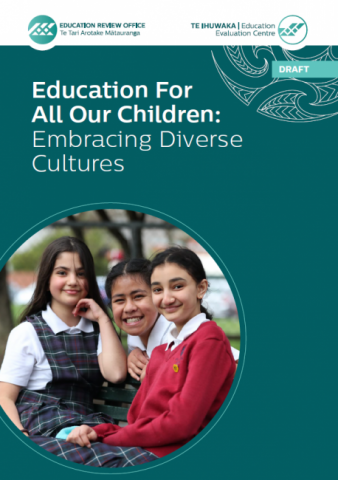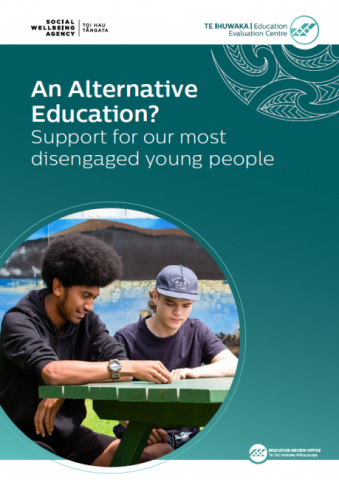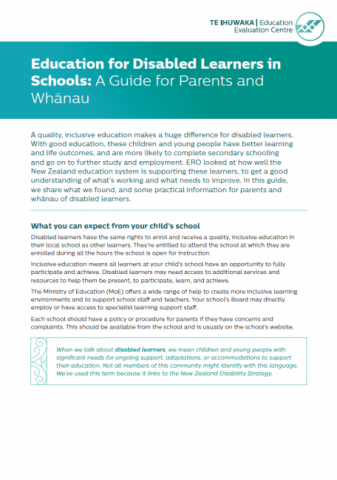Learning in residential care: They knew I wanted to learn
Published: 01 Jul 2021
Children and young people who are placed in Oranga Tamariki residential care are among the most at risk of poor outcomes later in life. Education can change that. This report looks at the quality of education for students in Oranga Tamariki Care and Protection and Youth Justice residences and how it can be improved.
- Audience:
- Academics
- Education
- Parents
- Schools
- Content type:
- Research
- Topics:
- Te Ihuwaka | Education Evaluation Centre
- At-risk students
- Behavioural needs
- Best practice
- Boys' education
- Child wellbeing
- Culture
- Education and care services
- Education outcomes
- Education transitions
- Equitable outcomes
- Good practice
- High needs
- Māori
- Physical and emotional safety
- Priority learners
- Raising achievement
- Social workers
- Teaching
- Te reo Māori
- Transitions
- Vulnerable learners
- Wellbeing












